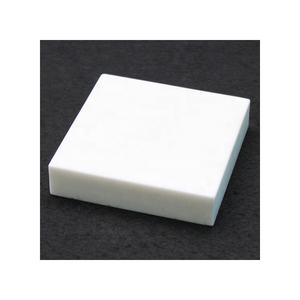Discover Premium Ceramic Products | Durability & Elegance United | Advanced Ceramics
PRODUCT PARAMETERS
Description
Overview of aluminum nitride ceramics
Aluminum Nitride Ceramic is an advanced ceramic material with aluminum nitride as the main component. It has been widely used in electronics, optics, and mechanics due to its unique properties.
Features of aluminum nitride ceramics
High thermal conductivity: Aluminum nitride ceramics have relatively high thermal conductivity, usually between 170-260 W/m·K, which makes it an excellent heat dissipation material. It is especially suitable for electronic devices that require efficient heat dissipation, such as substrate materials for power semiconductor devices.
Good electrical insulation: Despite its high thermal conductivity, aluminum nitride ceramics are excellent insulators of electricity, which can effectively prevent current leakage and ensure the safe operation of electronic components.
Low dielectric constant and dielectric loss: These characteristics make aluminum nitride ceramics very suitable for use in high-frequency circuits because it can reduce energy loss during signal transmission.
High temperature resistance: Aluminum nitride ceramics can maintain structural stability and strength at extremely high temperatures. Its melting point is about 2800°C, so it is suitable for applications in high temperature environments.
Low thermal expansion coefficient: Compared with semiconductor materials such as silicon, aluminum nitride has a lower thermal expansion coefficient, which means it has better dimensional stability when the temperature changes, which helps improve packaging reliability.
Corrosion resistance: Aluminum nitride ceramics have good chemical stability to most molten metals and are not easily oxidized or corroded, allowing them to perform well in harsh environments.
High mechanical strength: Although not as hard as some other types of ceramic materials, aluminum nitride ceramics still provide enough mechanical strength to allow them to be used in many structural applications.
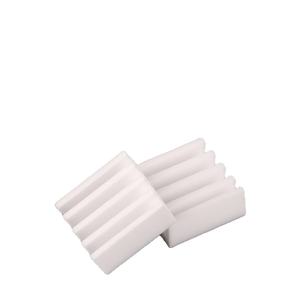
(Aluminum Nitride AlN Ceramic Substrate Thermally Conductive Material and Insulator)
Specifications of Aluminum Nitride AlN Ceramic Substrate Thermally Conductive Material and Insulator
Aluminum Nitride (AlN) ceramic substratums are high-performance products designed for innovative thermal administration in electronic devices. These substrates integrate outstanding thermal conductivity with strong electrical insulation. They take care of warm far better than lots of standard ceramics. The thermal conductivity of AlN rises to 170-200 W/mK. This makes it ideal for applications where heat need to relocate rapidly away from delicate elements.
AlN ceramics function well in high-power electronic tools. They stop overheating by effectively transferring warmth to warm sinks or other cooling down systems. The material likewise matches the thermal growth of silicon. This lowers stress and anxiety when utilized with silicon-based semiconductors. It ensures integrity during temperature changes.
Electric insulation is another essential feature. AlN substratums have high dielectric strength. They stand up to electrical malfunction also under high voltages. This makes them risk-free for usage in circuits calling for insulation between conductive layers.
The material shows strong chemical stability. It withstands deterioration from acids, alkalis, and other extreme chemicals. This longevity permits it to perform in demanding atmospheres. AlN porcelains likewise preserve security at high temperatures. They operate effectively approximately 1000 ° C without deteriorating.
Mechanical homes include high solidity and rigidness. AlN substrates stand up to physical stress and anxiety and wear. They appropriate for precision parts needing lasting resilience. Surface surfaces can be tailored for level of smoothness or roughness. This helps in bonding with steels or various other materials.
Applications include power components, LED lighting, RF parts, and semiconductor packaging. AlN substratums boost performance in tools like laser diodes, microwave tubes, and high-frequency circuits. Custom-made sizes and densities are offered. Alternatives consist of metallization layers like tungsten or gold for better electrical links.
Light weight aluminum Nitride porcelains meet strict sector standards. They attend to obstacles in modern-day electronic devices by stabilizing thermal administration, electrical insulation, and mechanical strength. Makers count on AlN for remedies in miniaturized, high-power systems.
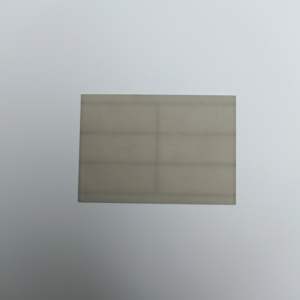
(Aluminum Nitride AlN Ceramic Substrate Thermally Conductive Material and Insulator)
Applications of Aluminum Nitride AlN Ceramic Substrate Thermally Conductive Material and Insulator
Light Weight Aluminum Nitride (AlN) ceramic substrates are innovative materials valued for high thermal conductivity and electric insulation. These buildings make them ideal for applications requiring effective heat monitoring and dependable electrical seclusion. AlN substrates master high-power electronic devices. They move warmth away from components rapidly. This protects against overheating. It makes sure device long life.
In LED lighting systems, AlN porcelains work as base materials. LEDs generate substantial warmth during procedure. Efficient warmth dissipation is important. AlN substrates handle this effectively. They preserve optimal LED performance. They expand item lifespan.
Power electronics take advantage of AlN substrates. Devices like shielded entrance bipolar transistors (IGBTs) and power components make use of these materials. High thermal conductivity reduces thermal stress and anxiety. It improves power performance. This is essential for renewable resource systems. Solar inverters and wind turbines rely on such components.
Radio frequency (RF) and microwave devices use AlN porcelains. These applications demand steady dielectric buildings. AlN makes certain marginal signal loss. It sustains high-frequency procedures. This is essential for 5G technology and radar systems.
The automobile market embraces AlN substrates for electric automobiles (EVs). Power converters and battery management systems need reliable thermal control. AlN handles high temperatures. It boosts EV integrity and safety and security.
Aerospace applications leverage AlN’s durability. Severe atmospheres demand products resistant to thermal shock. AlN substratums perform well under extreme conditions. They are used in satellite elements and avionics.
Semiconductor producing uses AlN for wafer processing. Its insulation residential properties prevent electric disturbance. It sustains accuracy in chip production.
Microelectromechanical systems (MEMS) incorporate AlN for sensing unit security. The material’s thermal and electric traits ensure precise analyses.
AlN porcelains are likewise picked for their chemical resistance. They endure harsh settings. This makes them suitable for commercial tools.
The combination of thermal monitoring and electrical insulation settings AlN substrates as crucial products throughout markets. Their role beforehand innovation remains to expand.
Company Introduction
Advanced Ceramics founded on October 17, 2014, is a high-tech enterprise committed to the research and development, production, processing, sales and technical services of ceramic relative materials and products.. Since its establishment in 2014, the company has been committed to providing customers with the best products and services, and has become a leader in the industry through continuous technological innovation and strict quality management.
Our products includes but not limited to Silicon carbide ceramic products, Boron Carbide Ceramic Products, Boron Nitride Ceramic Products, Silicon Carbide Ceramic Products, Silicon Nitride Ceramic Products, Zirconium Dioxide Ceramic Products, Quartz Products, etc. Please feel free to contact us.(nanotrun@yahoo.com)

Payment Methods
T/T, Western Union, Paypal, Credit Card etc.
Shipment Methods
By air, by sea, by express, as customers request.

5 FAQs of Aluminum Nitride AlN Ceramic Substrate Thermally Conductive Material and Insulator
Aluminum nitride (AlN) ceramic substrates are popular in electronics. People often ask questions about their properties. Here are five common ones.
What makes aluminum nitride better than other ceramics for heat management? Aluminum nitride has high thermal conductivity. It moves heat faster than alumina or other oxides. This helps cool high-power devices like LEDs or semiconductors. Its thermal conductivity reaches around 170-200 W/mK. This reduces overheating risks in compact systems.
Can aluminum nitride substrates handle high voltages? Yes. They are excellent electrical insulators. Their high dielectric strength stops current leakage. This makes them safe for circuits with high voltages. They work in power modules, RF components, and harsh environments.
Are aluminum nitride substrates durable in extreme conditions? They resist heat, wear, and chemicals well. They stay stable at temperatures up to 1000°C. This suits them for aerospace or automotive uses. They also handle thermal cycling without cracking. Moisture or corrosive gases rarely damage them.
How are aluminum nitride substrates made? Manufacturers mix fine AlN powder with binders. They shape it into sheets or parts using pressing or casting. The material is sintered at high temperatures. This process creates dense, strong ceramics. Precision grinding ensures smooth surfaces for circuits or coatings.
Is aluminum nitride expensive compared to other substrates? It costs more than alumina or aluminum oxide. Raw materials and processing need advanced technology. The price is worth it for high-performance applications. Better thermal management lowers long-term failure risks. This saves money in critical systems.
People choose aluminum nitride when heat and insulation matter most. Its performance justifies the cost in advanced electronics. Engineers trust it for reliability under stress.
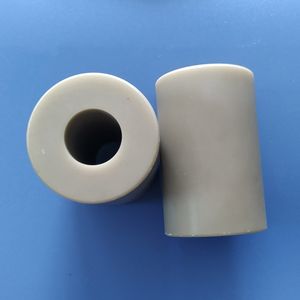
(Aluminum Nitride AlN Ceramic Substrate Thermally Conductive Material and Insulator)
REQUEST A QUOTE
RELATED PRODUCTS
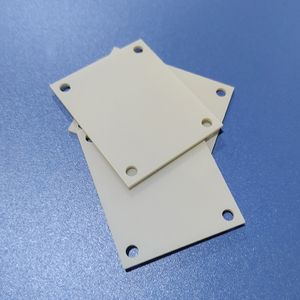
Big Diameter Od300 Aluminum Nitride Disc for Semiconductor
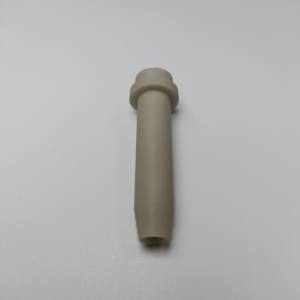
Hot Aluminum Nitride Aln Ceramic White Powder China
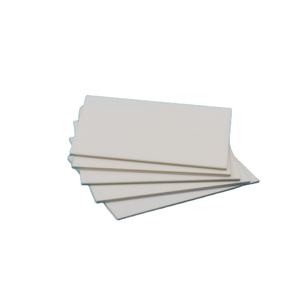
Aluminum Nitride Ceramics Sheet Aln Ceramic Plate
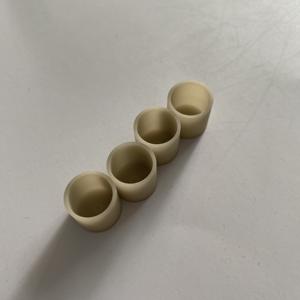
High Heat Conductivity Aluminum Nitride Aln Ceramic Rod for High Power Electrical Insulation
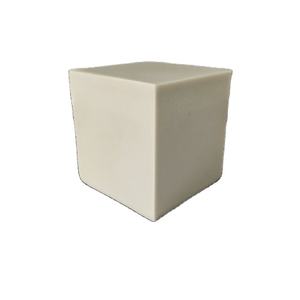
Electrical Insulating Structural Aluminum Nitride Aln Ceramic Plate
